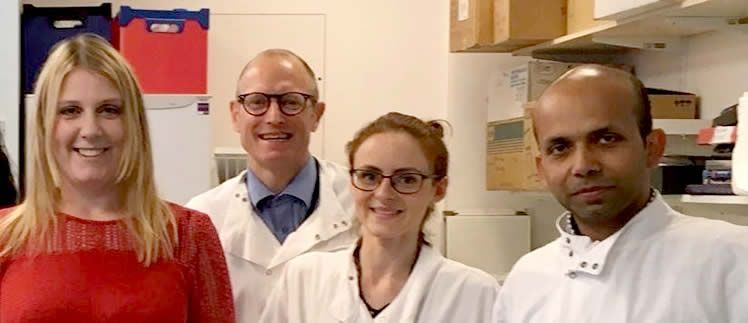
Targeting a new modifier gene in Joubert Syndrome offers hope for a therapy
Professor John Sayer and his team at Newcastle University have recently identified a new modifier gene in Joubert Syndrome, which could become a novel target for a therapy.

Rosetrees Trust and the Medical Research Council provided the funding which enabled Professor Sayer's team to further develop their nephronophthisis (NPHP) mouse model. NPHP is a severe, early-onset cystic kidney disease and can present in children and adults with the incurable, inherited Joubert syndrome. Currently, NPHP only be treated symptomatically. are limited to symptomatic therapy. It's hoped that the research will help bring treatments for NPHP to the clinic. Using their mouse model, Professor Sayer's team showed for the first time that the single locus, Barttin, is a modifier. In a cohort of patients, they demonstrated that the human homolog plays a similar role in disease.
Professor Sayer commented: “We have demonstrated using mouse and human DNA samples that Barttin modifies the severity of kidney disease in the ciliopathy Joubert syndrome. This is the first time that a modifier gene for cystic kidney disease has been demonstrated. This new knowledge will improve diagnoses and will be used to develop therapies to reduce the severity of kidney disease in affected patients. Our research is a major step forwards proving the power of using genetic mouse models to study rare genetic disease such as ciliopathies and in the future, we may be able to offer a therapy that switches on the protective modifier gene and reduces the kidney disease severity. This work allows personalised therapies to be developed in patients with this inherited kidney disease.”
Patient involvement
Leanne and Michael Buckley's family were involved in this pioneering research. Their two children Emma and Ben were born with Joubert Syndrome and both developed kidney failure before the age of eight. The children also suffer from a range of problems including visual impairment, communication problems and developmental delay. They need 24-hour care.
Leanne commented: I think it's amazing what Dr Sayer and his team have discovered and I'm thankful for the work and dedication they have put into studying the Joubert gene. The future is promising for other families. Now there is hope when before families would be filled with worry about the future held. I'm thankful that we as a family helped play a part in helping the team to discover a possible treatment for this disease.
Leanne is pictured above with Professor John Sayer and team members Laura Devlin and Dr Shalabh Srivastava.
The research was published in the Proceedings of the National Academy of Sciences (PNAS).